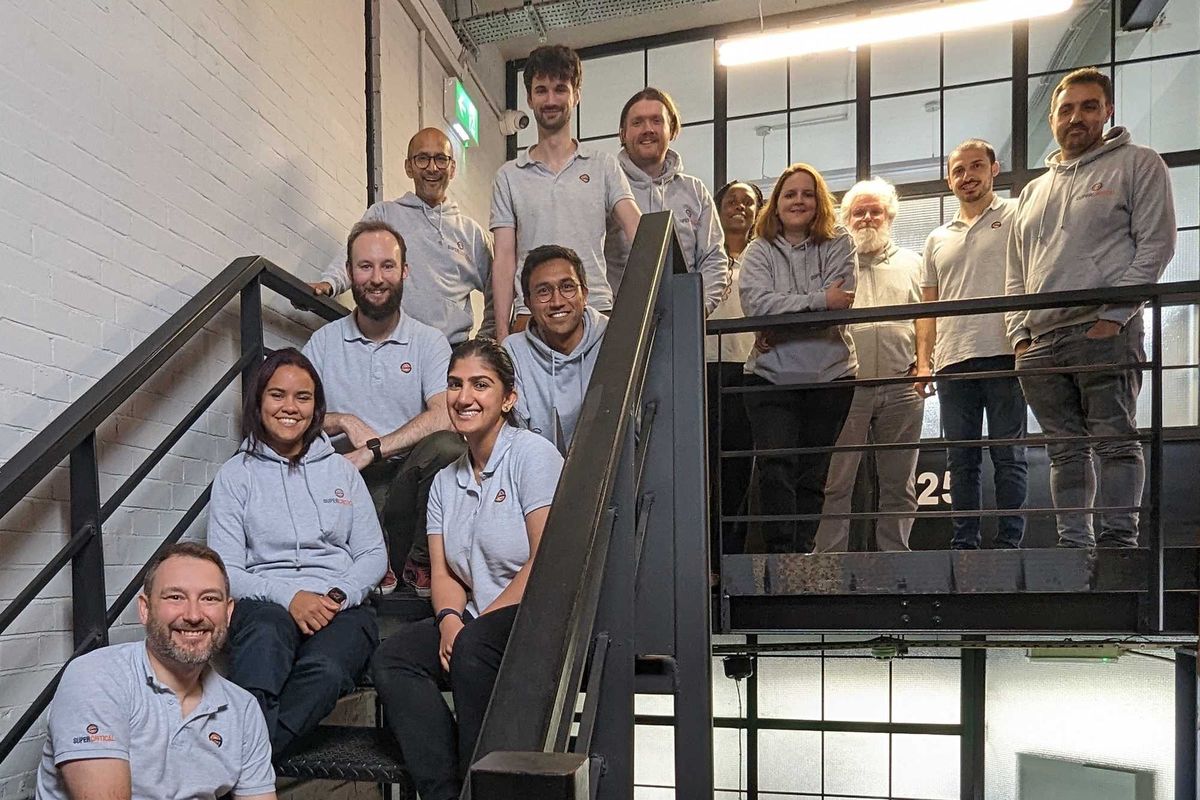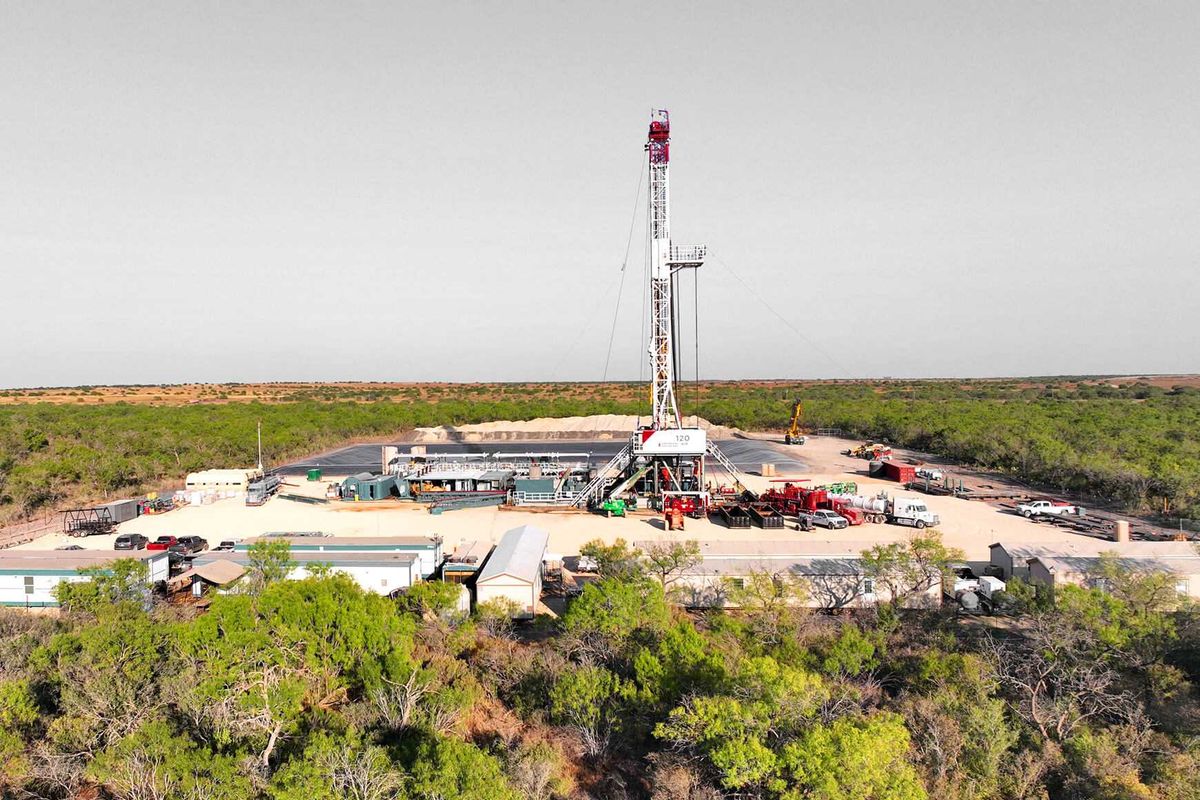top stories
Houston researchers earn NSF backing, global clean energy solutions provider expands, and more trending news
Editor's note: From UH researchers securing NSF funding to the U.S. doling out EV grants, these are the top headlines that resonated with EnergyCapital readers on social media and daily newsletter this week.
Houston scientists land $1M NSF funding for AI-powered clean energy project

University of Houston professor Xiaonan Shan and the rest of his research team are celebrating fresh funding from a federal grant. Photo via UH.edu
A team of scientists from the University of Houston, in collaboration with Howard University in Washington D.C., has received a $1 million award from the National Science Foundation for a project that aims to automate the discovery of new clean-energy catalysts.
The project, dubbed "Multidisciplinary High-Performance Computing and Artificial Intelligence Enabled Catalyst Design for Micro-Plasma Technologies in Clean Energy Transition," aims to use machine learning and AI to improve the efficiency of catalysts in hydrogen generation, carbon capture and energy storage, according to UH.
“This research directly contributes to these global challenges,” Jiefu Chen, the principal investigator of the project and associate professor of electrical and computer engineering, said in a statement. “This interdisciplinary effort ensures comprehensive and innovative solutions to complex problems.” Continue reading.
US awards $3B for EV battery production in Texas, other states

The grants will fund a total of 25 projects in 14 states, including Texas. Photo via Getty Images
The Biden administration is awarding over $3 billion to U.S. companies to boost domestic production of advanced batteries and other materials used for electric vehicles, part of a continuing push to reduce China’s global dominance in battery production for EVs and other electronics.
The grants will fund a total of 25 projects in 14 states, including Texas, as well as Ohio, South Carolina, Michigan, North Carolina, and Louisiana.
The grants announced Friday mark the second round of EV battery funding under the bipartisan infrastructure law approved in 2021. An earlier round allocated $1.8 billion for 14 projects that are ongoing. The totals are down from amounts officials announced in October 2022 and reflect a number of projects that were withdrawn or rejected by U.S. officials during sometimes lengthy negotiations. Continue reading.
Podcast: Houston energy tech leader on breaking down industry silos, sustainable digitization

Ken Nguyen, principal technical program manager at bp, joins the Houston Innovators Podcast to discuss the company's new partnership with NASA. Photo courtesy of bp
Ken Nguyen oversees the implementation of new technologies at bp, which has its United States headquarters in Houston, and that includes software and hardtech, from cybersecurity to the digitization of the industry, which is an integral part of bp's energy transition plan.
"For bp, we do feel like as we transition as an international oil and gas company into an integrated energy company and we lean into the energy transition, the adoption of new technology is a critical part of making that viable for the planet and for the company," he says on the Houston Innovators Podcast.
According to Nguyen, principal technical program manager at bp, the company has invested its resources into exploring energy transition technologies like electric vehicle charging — including opening a fast-charging station at its Houston office — and renewable energy, including a solar farm about 10 miles northeast of Corpus Christi. Continue reading.
Global clean energy solutions provider expands in US with Houston-area location

The move expands Sineng Electric's presence in the U.S. clean energy sector. Photo courtesy of Sineng
Solar and energy storage solutions company Sineng Electric has expanded its U.S operations by officially opening its North America Service Center in Katy, Texas. The move is meant to help expand its presence in the U.S. clean energy sector.
The Fulshear facility will function as a “one-stop service hub” that will encompass office space, a technical support center, and warehouse. The space will also have opportunities for collaborative project planning, operations and maintenance (O&M) training, and real-time technical support.
"With its abundant solar resources, robust energy infrastructure, and spirit of innovation, Texas - particularly the Houston area - is poised to lead America's renewable energy revolution,” Fulshear Mayor Don McCoy says in a news release. Continue reading.
Houston-based renewable energy developer to power Google with Texas solar project

The Texas solar project is expected to go online in 2026. Photo via elawan.com
A Spanish renewable power company with its United States headquarters in Houston has struck a corporate power purchase agreement with Google.
Elawan Energy, announced that it will supply renewable energy to Google under a PPA for the energy generated by a 37 megawatts defined conditions solar project located in the Texas Hill Country.
The PPA deal was facilitated through LEAP (LevelTen Energy’s Accelerated Process), which was co-developed by Google and LevelTen Energy. The goal is to source and execute clean energy PPAs more efficiently. All of this will contribute to Google’s 2030 goal to run on 24/7 carbon-free energy on every grid where it operates. Continue reading.










